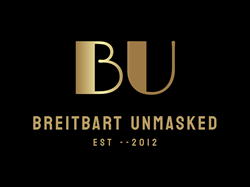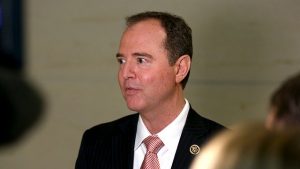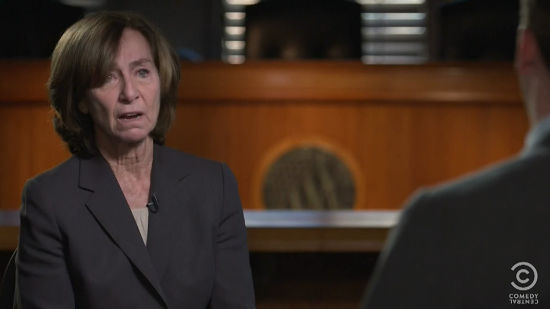In 2014 Federal Election Commission Vice Chairwoman Ann Ravel was discussing the current regulations on business ads as it relates to political ads. She commented that it was possible that new regulations would have to be instituted on media and SuperPacs as it relates to their echo chambering and connections to various right wing media outlets who push the narratives of various back end connected organizations. Instead she was met with a massive backlash of attacks pointed right at her because of how DrudgeReport titled his headline.
“A re-examination of the Commission’s approach to the Internet and other emerging technologies is long overdue,” Ravel, a Democrat, wrote in lamenting a deadlockedcommission vote over whether an Ohio-based business group must include disclaimers on political ads it posted for free on YouTube.com.
Instead, in a sign of how toxic American politics have become, it spawned unbridled ugliness, including death threats that have drawn the attention of law enforcement. What appears to have initially prompted the torrent of messages targeting Ravel: an Oct. 25, 2014, banner headline on the Drudge Report: “DEMS ON FEC MOVE TO REGULATE DRUDGE.”
“Die, fascist, die!” one anonymous person wrote to Ravel in an email reviewed by the Center for Public Integrity.
“Hope you have a heart attack,” read another email.
“Go fall down about ten flights of stairs,” yet another person wrote.
Other threats, while less overt, are equally disquieting.
“Best to be careful what you ask for. You will more than likely find the ‘Nazi’ scenario showing its ugly head,” one wrote to Ravel, who is Jewish.
“Keep it up, and the pitchforks will come out and then you and your ilk will have no place to hide and the People will have their justice,” promised another.
Of course this is part and parcel the same territory that liberal sites and organizations have faced from right wing extremist media. Even BU has been the target of such attacks just because we expose the underbelly of right wing media. So, this is part of the territory when one decides to write about or talk about these extremists. But for the Federal Election Commission it was something entirely new. So new in fact, that they had to contact the Federal Protective Service for help to deal with the onslaught of threats coming in because of how Drudge titled his headline.
In late 2014, Edward Holder, the FEC’s acting deputy staff director for management and administration, contacted the Federal Protective Service in response to threats against Ravel.
The service, a division of the U.S. Department of Homeland Security that protects federal facilities, then interviewed Ravel, FEC spokeswoman Judith Ingram confirmed. Ravel also confirmed she received extra security protection during a public forum in 2015.
The Federal Protective Service “doesn’t comment on possible threats against government officials,” said spokesman Scott McConnell in declining to answer questions. It’s unclear whether the service is actively investigating the most recent messages Ravel received.
Of course this goes into the power of Drudge and how he can elicit death threats and various other forms of harassment just because he mentions something or decides to link to some right wing nut jobs or their fringe headlines with scant evidence to back up their claims. No matter how you look at it, Drudge has power, and that power can and usually does bring out the extremist element that believes in every word he says or every site he links to as gospel from God.
The October 2014 headline the Drudge Report splashed across its site linked to aWashington Examiner article that reported on Ravel’s comments about the FEC revisiting Internet regulations. (Editors at the Drudge CReport did not respond to requests for comment.
The story also quotes then-FEC Chairman Lee Goodman, a Republican who warned that Ravel’s interest in stronger Internet regulations could lead to bloggers and politically active news outlets facing new rules.
“I told you this was coming,” Goodman said.
Goodman underscored his concerns about Internet regulation days afterward during a pair of Fox News interviews.
“I can’t imagine a regulatory regime reaching deep into the Internet,” he told host Tucker Carlson.
“It’s really a specter of a government review board … the government needs to know when to leave well enough alone,” he later told host Steve Doocy.
Of course Ravel said that she wasn’t interested or even trying to regulate free speech on the internet, but Drudge wasn’t having any of it, nor was the Washington Examiner and the author of the comment which was Lee Goodman, the then Republican Chairman of the FEC.
Goodman’s office said the commissioner wasn’t available to be interviewed. But Goodman emailed a statement disavowing threats against her.
“Unfortunately, too many people believe that the way to counter speech with which they disagree is to censor or threaten the speaker,” Goodman wrote. “The appropriate way to challenge an idea one disagrees with is to debate the idea on the merits. Commissioner Ravel’s formidable voice on regulatory issues should not be diminished by inappropriate threats or censorship.”
That is typical right winger speech. Its free speech for them, but no free speech for you. They always use this tactic to rile up the base. Anytime some right winger says something they can glom onto to make them look like victims, they will jump on the bandwagon and claim it, then ramp up the attacks and make boatloads of cash on it. You know, conservative victims need your cash to fight this liberal enemy of free speech or whatever the meme of the moment is.
In the end, any regulation that was being talked about failed. But Ann Ravel now has to sleep with the knowledge that somewhere out there someone might be lurking or waiting to attack her for real. Such is the life when taking on right wing nut-jobs.
The 2006 Internet communication regulations the FEC approved in a unanimous vote left most online political messaging unregulated. Only paid political ads published online became subject to similar rules governing traditional political messages, such as those that appear on television or radio.
Since then, the FEC has generally addressed digital and Internet political communications and transactions on a case-by-case basis.













